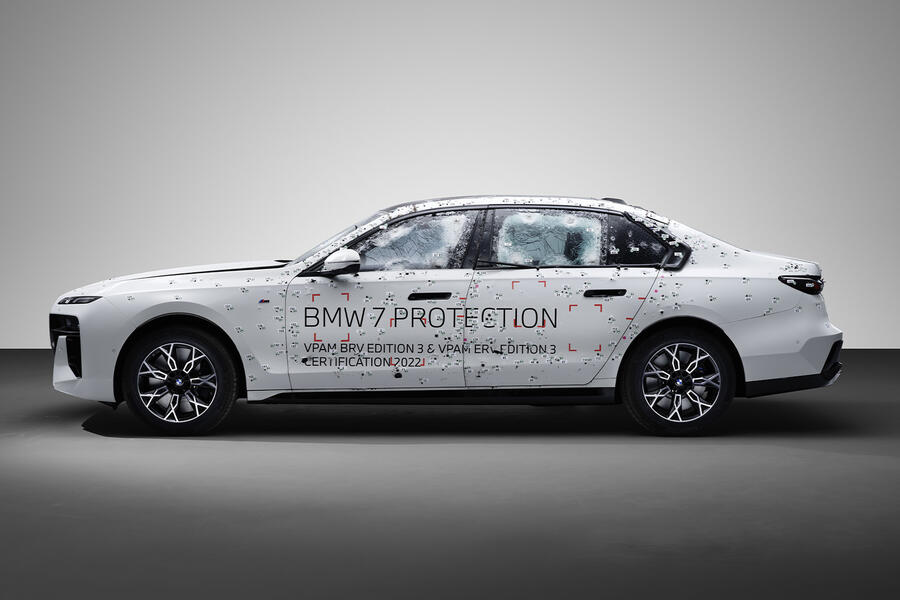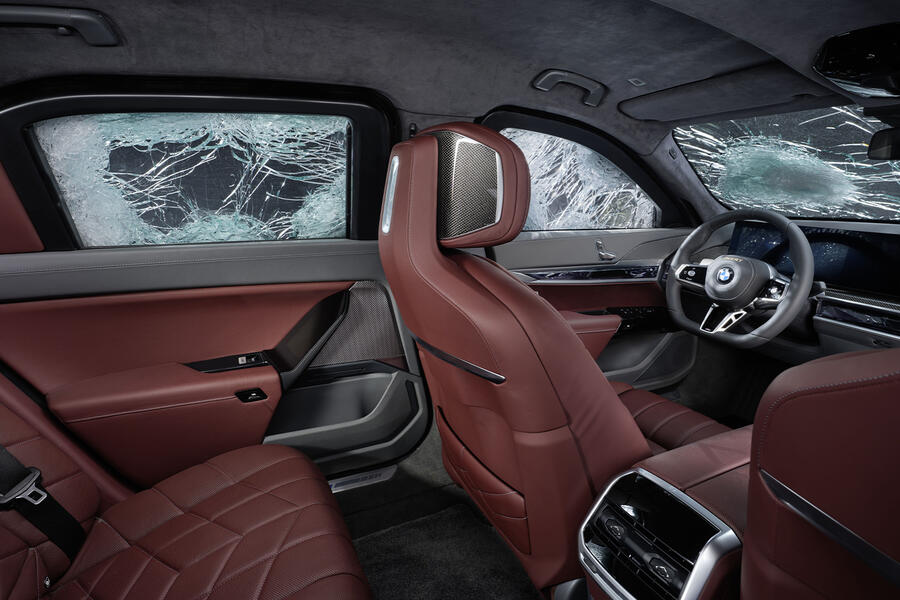
BMW has introduced armoured versions of its flagship saloon, offering enhanced protection with features such as protective glass, a reinforced chassis, and bodywork capable of withstanding explosives. This marks the first time the current generation of the 7 Series receives an armoured edition, with the electric BMW i7 also receiving its own Protection model.
Both vehicles are equipped with an armoured steel body known as the BMW Protection Core, which reinforces the doors, underbody, and roof. The company claims that this provides “maximum protection” against explosives, bullets, drone attacks, and hand grenades. Moreover, they feature VPAM 10-rated protective glass, the highest level of protection available for civilian protection vehicles.
The 7 Series Protection is rated VR9, meaning it can withstand ballistic attacks from high-velocity weapons traveling at speeds of up to 820 meters per second. It also offers PAS 300 blast resistance and includes a self-sealing fuel tank to prevent fuel loss.

The vehicles are also equipped with PAX 20-inch light-alloy wheels, specifically designed for them. These wheels feature a run-flat ring that allows driving at speeds of up to 50mph even when the tires have no air.
Due to the additional protective bodywork, the performance of the two cars is somewhat compromised.
The i7 Protection model is powered by two electric motors, generating 536bhp and 549lb ft of torque. While the standard i7 achieves a 0-62mph sprint in 4.7 seconds, the i7 Protection model takes 9.0 seconds to reach the same speed. Its top speed is limited to 99mph.
On the other hand, the 7 Series Protection is equipped with a 4.4-liter V8 mild-hybrid petrol engine that produces 522bhp and 553lb ft of torque. Its 0-62mph acceleration drops from 6.6 seconds to 4.2 seconds, with a top speed limited to 130mph.
